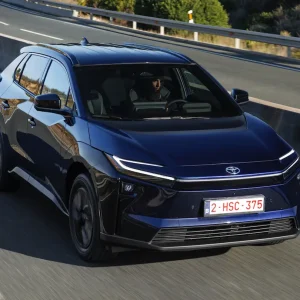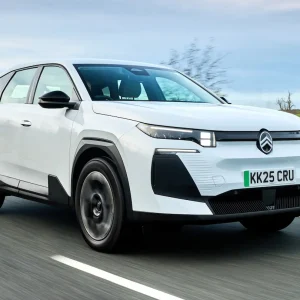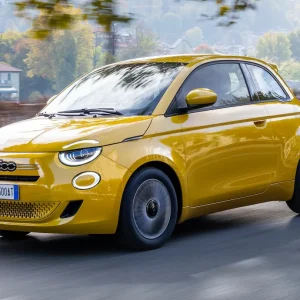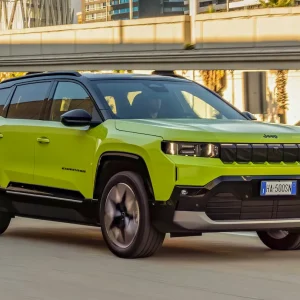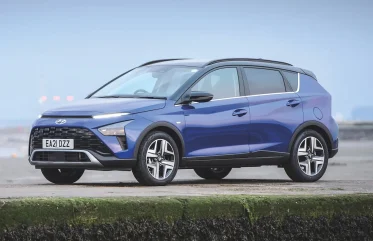
Hyundai last year joined the ranks of manufacturers supplementing their regular SUV model ranges with vaguely coupe-ish alternatives when it launched the Bayon, a competitor in the small SUV segment it had seemingly already covered with the Kona.
Having sampled the Bayon at launch with the entry-level 100hp mild hybrid engine and SE Connect equipment grade, we have now tried the model spec at the other end of the scale, with a 120hp mild hybrid (only the two engine choices are on offer) and the Ultimate equipment grade.
Taking the engine first, it offers a decent amount of power throughout the rev range, with the 48V system filling out the torque curve nicely. We tested it paired with six-speed ‘intelligent’ manual transmission (featuring an electronically-controlled clutch, which decouples the engine under certain conditions to improve efficiency), which has a pleasant, easy, sporty shift action. Compared with the 100hp engine, it is only 1mpg worse on official fuel economy (or identical with the alternative seven-speed automatic gearbox) and has the same BIK-governing CO2 emissions, meaning the only real financial reason not to choose the more powerful engine is the extra £750 P11D value.
There’s a willing feel to the Bayon’s handling, with light and responsive steering and limited body roll, which combined with the eager engine makes it a good tool for nipping about town. Ride quality is generally good too, with bumps in the road causing few problems.
Although the Ultimate grade tops the Bayon range, the cabin is not filled with luxury materials, but most common touch points are nicely trimmed and everything feels well put together. We were also impressed by the plush-feeling seats. From the outside, the Ultimate grade can be distinguished from the rest of the range by black door mirrors and a two-tone roof.
The Bayon benefits from Hyundai’s familiarly impressive infotainment set-up, including a 10.25in driver display, which is standard throughout the range, and a 10.25in central touchscreen (up from 8in with the entry-level version), with physical ventilation controls usefully retained. Equipment levels are generally strong, with the Ultimate grade also getting a Bose premium sound system.
Rear legroom is decent and headroom is good, with the Bayon’s swooping roofline coming nowhere near interfering with passengers’ hair. However, a 334-litre boot is a bit down on what you’d get from a more conventional SUV such as a Kona.
Despite the luggage space deficiency, the Bayon does look a tempting fleet choice compared with the Kona, as in the equivalent spec it’s nearly £2,000 cheaper. It also has better fuel economy, CO2 emissions and predicted residual values. The Bayon also looks good value for money against rivals from other manufacturers such as the Ford Puma and Renault Captur. Although those models have qualities the Bayon cannot match, for the cost-conscious buyer the Hyundai seems a good bet – it surprises and impresses in lots of areas, despite not wowing in many.
Hyundai Bayon 1.0 Petrol T-GDi 48 Volt Hybrid 120PS 6 Speed IMT Ultimate
P11D: £24,545
Residual value: 41.4%
Depreciation: £14,376
Fuel: £8,465
Service, maintenance and repair: £2,247
Cost per mile: 41.81p
Fuel consumption: 52.3mpg
CO2 (BIK %): 121g/km (29%)
BIK 20/40% a month: £119/£237
Luggage capacity: 334 litres
Engine size/power: 998cc/120hp

